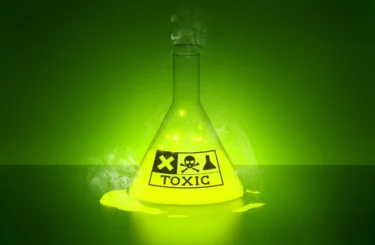Michigan Expands COVID-19 Protections for Long-Term Care Facility Employees
BY: Tad T. Roumayah | IN: COVID-19, Personal Injury
A disproportionate number of cases and deaths in many states can be traced back to the nation’s approximately 15,600 long-term care facilities, increasing the risks for the millions of people living and working in them.
In Michigan and across the country, nursing homes and long-term care facilities have quickly become epicenters for the COVID-19 pandemic. A disproportionate number of cases and deaths in many states can be traced back to the nation’s approximately 15,600 long-term care facilities, increasing the risks for the millions of people living and working in them.
That is why Gov. Gretchen Whitmer issued Executive Order No. 2020-50 on April 15, 2020, to enhance protections for workers and residents in long-term care facilities in the state.
The order notes that “due to the nature of the care provided in long-term care facilities and the vulnerable status of their residents, the risk of harm posed by a single positive case of COVID-19 to the entire facility—residents and staff—is inordinately high.” Accordingly, the order provides “limited and temporary relief from certain rules and procedures so as to provide enhanced protections for residents and employees of long-term care facilities during this unprecedented crisis.”
Effective now through May 14, 2020, the new protections apply to nursing homes, homes for the aged, adult foster care facilities, and assisted living facilities throughout the state. The order makes clear that “employees of long-term care facilities or regional hubs who test positive for COVID-19 or who display one or more of the principal symptoms of COVID-19 should remain in their homes or places of residence… and that their employers shall not discharge, discipline, or otherwise retaliate against them for doing so.”
Additionally, the order provides that all Michigan long-term care facilities must:
- Cancel all communal dining and all internal and external group activities throughout the declared states of emergency and disaster;
- Take all necessary precautions to ensure the adequate disinfecting and cleaning of facilities, in accordance with relevant guidance from the Centers for Disease Control and Prevention (“CDC”);
- Use best efforts to provide appropriate personal protective equipment (“appropriate PPE”) and hand sanitizer to all employees that interact with residents;
- As soon as reasonably possible, but no later than 12 hours after identification, inform employees of the presence of a COVID-19-affected resident;
- Notify employees of any changes in CDC recommendations related to COVID-19;
- Keep accurate and current data regarding the quantity of each type of appropriate PPE available onsite, and report such data upon the Department of Health and Human Services’s (DHHS) request or in a manner consistent with DHHS guidance; and
- Report to DHHS all presumed positive COVID-19 cases in the facility together with any additional data required under DHHS guidance.
Gov. Whitmer’s order also includes several other provisions regarding the protection of residents as well as facilities’ reporting requirements when cases of COVID-19 arise.
If you have questions regarding the health and safety of employees and residents of long-term care facilities during the pandemic, or have any other employment-related concerns arising from COVID-19, please contact the employment law attorneys at Sommers Schwartz today. We are working remotely and are still here to help.
Tad T. Roumayah
Tad Roumayah focuses his practice primarily on employment litigation, representing employees who have encountered discrimination, retaliation, wrongful discharge, whistleblower protection claims, wage and hour violations and other employment issues and disputes.





